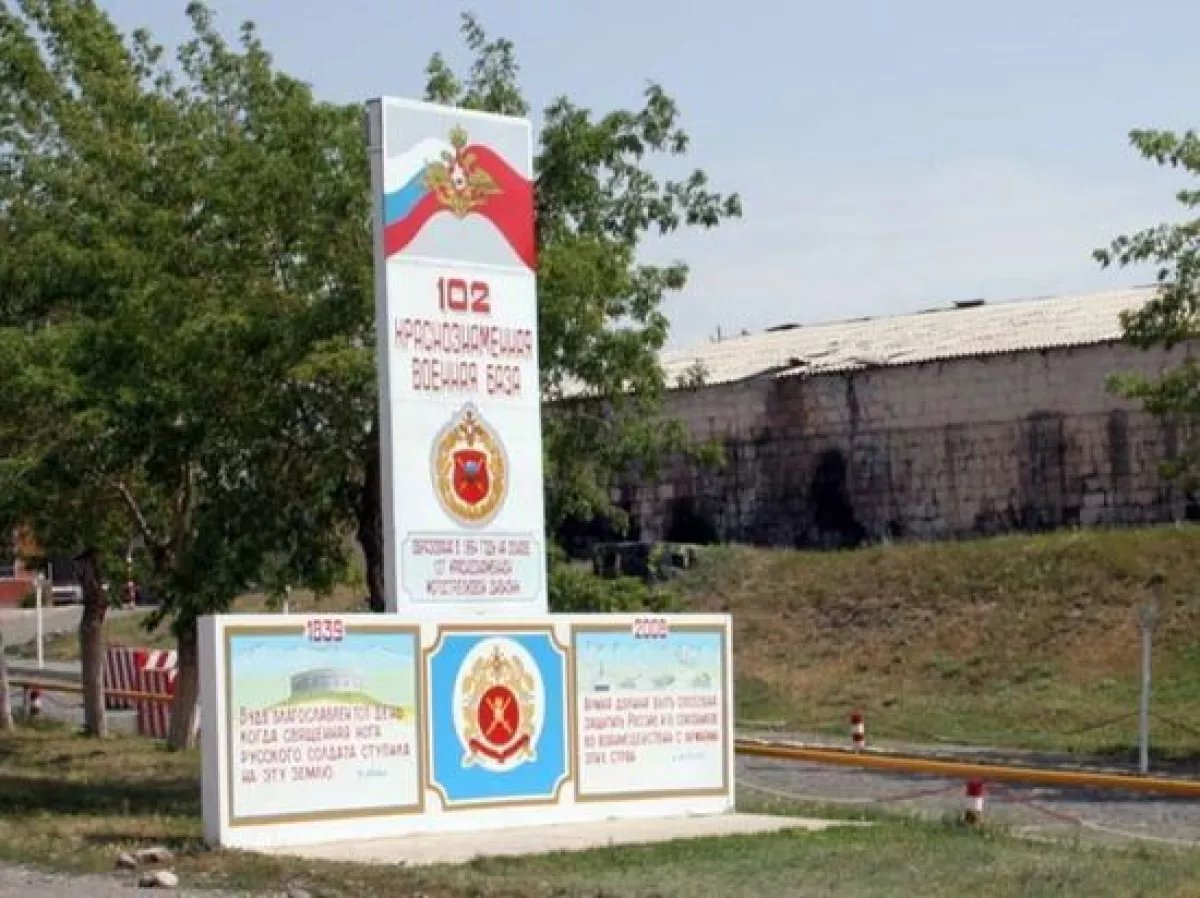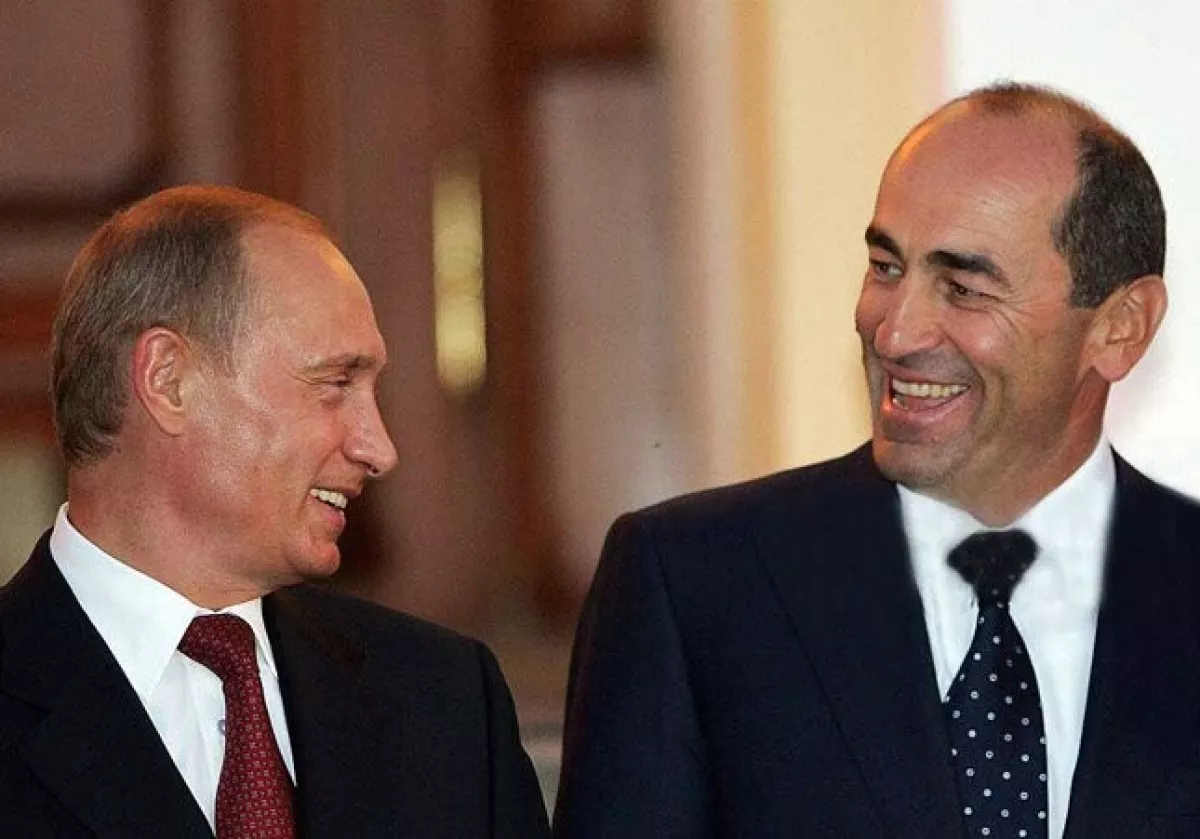Shadows over Gyumri: Russia plotting Pashinyan’s overthrow, preparing new war with Azerbaijan Exclusive by Caliber.Az
Information obtained by Caliber.Az points to alarming shifts in Russia’s military strategy in the South Caucasus. According to data available to our editorial team, recent weeks have seen increased activity at the 102nd Russian military base in Armenia’s Gyumri. However, this is not about troop rotation or a planned strengthening of defensive capabilities. Everything suggests a different logic — one in which military tools are being turned into levers for domestic political interference.
Sources claim that in June and July 2025, the Russian side repeatedly requested Azerbaijan’s permission to allow military transport aircraft to fly through our airspace. The purpose was to transfer weapons to Armenian territory. However, Baku took a firm and unequivocal stance: the corridor is closed. This decision reflects both the protection of national interests and an understanding of the potential risks involved.
The nature of the cargo being sent raises serious concerns. Besides heavy weaponry, there were attempts to deliver weapons intended for close combat and urban warfare to the base in Gyumri. In other words, not only for a future open confrontation at the Azerbaijani border but also for street fighting and battles in densely built-up areas.

According to the information received, one of Russia’s goals is the overthrow of Armenia’s current Prime Minister, Nikol Pashinyan. Having lost its direct influence over Yerevan, Moscow may attempt to regain control through a managed crisis. Against this backdrop, provocations across the entire territory of Armenia cannot be ruled out — including possible terrorist acts. The model is familiar: in Crimea in 2014, everything began with “little green men,” chaos, and the parallel replacement of political figures.
In Moscow’s “reserve” are the old guard: Robert Kocharyan, Serzh Sargsyan, and Samvel Karapetyan. All three have pro-Russian reputations and could be used as a “national alternative” to Pashinyan amid the created confusion. It is assumed that after a wave of provocations, they will come to the forefront — under the pretext of “saving” the situation. Behind the scenes, the same fifth column embedded in Armenian politics will be at work.

In the event of a successful power shift, sources believe the next phase would be a reversal of Yerevan’s political course, followed by an escalation against Azerbaijan. This, they say, explains the heavy weaponry Russia attempted to transfer to the 102nd base.
This is not a matter of routine equipment transfer or temporary activity — it reflects a structural preparation for a series of political and military steps that could potentially reshape the entire regional landscape. That is the core threat. Moscow views Armenian territory as an operational space where it can implement a model of managed crisis with a forceful resolution. Simultaneously, it aims to reclaim its lost influence in the South Caucasus.
Azerbaijan’s refusal to grant Russia an air corridor is an important but intermediate barrier. Far more crucial is understanding the mechanism by which Russia is conducting a dual game — one that targets Armenia now, and Azerbaijan in the near future.
For Azerbaijan, such a scenario signals a potential rise in instability along its borders and the emergence of a new level of threat. Should this plan be implemented, Armenia could once again find itself not as an actor, but as an object of foreign control. This is evidenced by the methods, the names involved, and the rhetoric being used. Behind all these elements lies a familiar logic: controlled chaos, regime change, militarisation, and external conflict — textbook strategy.
Russia is still hoping to regain its lost influence — but the price may be the overall security balance in the South Caucasus. And while for Moscow, the destabilisation of neighbouring countries is an acceptable tool of geopolitical recalibration, for the region, it means being drawn into someone else’s game — with destructive consequences.
The question is no longer whether Yerevan will allow such a scenario to unfold. The real question is whether it is ready to acknowledge that its political future may be rewritten — not within the framework of a constitutional process, but in the interests of an external power, following a script drafted not in Yerevan, but at the headquarters of the 102nd base — and higher up, in Moscow.
Azerbaijan, too, is no longer a country that can be ignored or presented with a fait accompli. We are not passive observers. We see, we analyse, we draw conclusions. And we possess the will, the tools, and the political experience to prevent the region from being reshaped according to someone else’s design.








